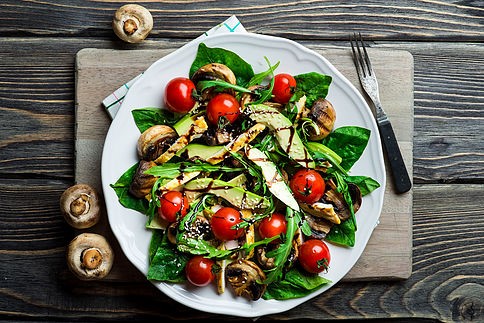
Dr. Richa Mittal
Over the past two weeks, we have reviewed what insulin resistance is, what causes it, and what the signs could be that you have it. We also briefly discussed the possible consequences on your health if you have untreated insulin resistance.
How your body handles food (aka your metabolism) is controlled by a complex number of factors. They are not completely in your control given much of it is determined by genetics and other factors that are still being explored. However, if you are someone who is showing signs of insulin resistance, you can definitely reverse or at least improve this condition. Let us remember why insulin is released in the first place (in response to carbohydrates in our food) and why the levels increase ( because of "resistance" that develops as we gain abdominal fat).
Keeping that in mind, how can you eat so your body will release less insulin and store less of the energy you eat? You can eat more foods that do not spike your insulin as much. These would be foods that do not spike your blood sugar. Refined carbohydrates like bread, pasta, baked goods and rice cause your blood sugar to increase quickly; which results in- you guessed it! Release of insulin.
If you eat carbohydrates with fiber, you have a less dramatic increase in blood sugar. Non-starchy vegetables, whole grains, nuts and beans/legumes have heart healthy-fiber and good fats that can help stabilize your blood sugar and decrease the amount of insulin released. Proteins and fats do not result in significant spikes of insulin; therefore you need to increase these in your diet.
How much carbohydrate your body can handle daily is different for everyone. If you do switch to a low carbohydrate lifestyle to try to reverse insulin resistance, you will need to adjust your daily carbohydrate intake according to whether you are losing weight on the amount you are eating. For some people this could be less than 150 grams/day or it could be less than 20 grams/day (a ketogenic diet- more on that in a future post).
Of note, if you have diabetes or are on diabetes medications, it is very important to notify your doctor about this lifestyle change because you are at risk of developing low blood sugar (hypoglycemia), which is a dangerous condition. You will require adjustment of your medications in order to prevent this.
As you lose abdominal fat, your body will be able to use insulin more efficiently, therefore you will become less insulin resistant. Other inflammatory factors should also improve. Another thing you can do to help with insulin resistance is exercise- aerobic and increase muscle mass- more in this in a future post!
Next week, I will go into more detail on how to live a low carbohydrate lifestyle. Future posts will discuss specifics on the ketogenic diet, ways to enhance your metabolism, the detrimental effects of overweight and obesity and much more!
Until then, be well!
The Content is not intended to be a substitute for professional medical advice, diagnosis, or treatment. Always seek the advice of your physician or other qualified health provider with any questions you may have regarding a medical condition.

